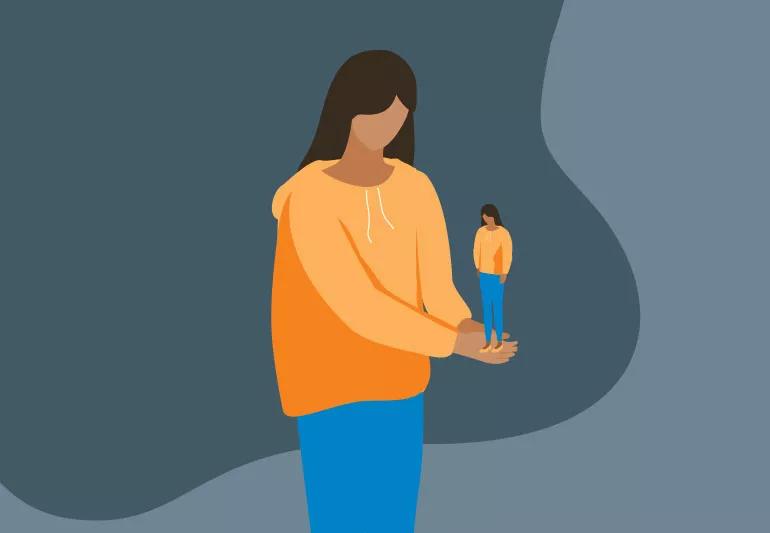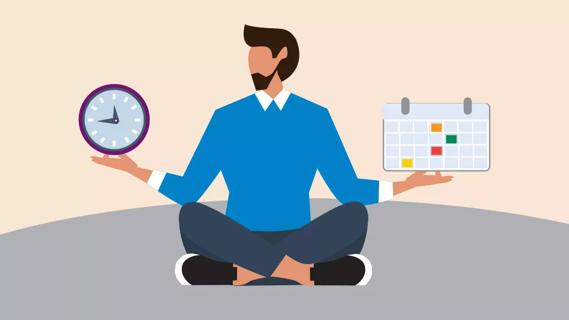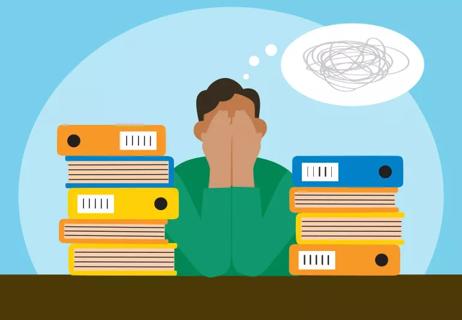You can change the way you think about yourself

Whether it’s going up, down or hovering somewhere in the middle, self-esteem impacts how we view ourselves.
Advertisement
Cleveland Clinic is a non-profit academic medical center. Advertising on our site helps support our mission. We do not endorse non-Cleveland Clinic products or services. Policy
Self-esteem is an important building block for many things: our confidence in our abilities, our sense of self-worth and how we compare ourselves to others. Low self-esteem can develop over time, but you can bring it back up by changing the way you perceive yourself and your negative thoughts.
Psychologist Lauren Alexander, MD, explains why self-esteem is important and how to knock it up a couple of notches to improve your overall health.
Having good self-esteem isn’t just feeling good about yourself. Your sense of self-worth can profoundly affect your mental health.
“I think it’s incredibly important for your mental health to have confidence in your abilities, so that you have a good sense of self-worth,” Dr. Alexander says. “And that you have the ability to grow and recognize that mistakes are normal.”
Low self-esteem can lead to bigger issues like depression and anxiety. In fact, they often go hand in hand.
“Anytime you are struggling with a mental health issue, it’s good to think about your self-worth and how you see yourself,” Dr. Alexander says.
Low self-esteem can come out in many ways — but in simple terms, it’s being mean to yourself.
You may have low self-esteem if you:
Advertisement
It can be hard to accept that you might be experiencing low self-esteem. But recognizing it is the first important step to working against those negative thoughts.
If you’ve recognized low self-esteem in yourself, you may want to think about some of the possible root causes. Dr. Alexander says negative self-talk and thoughts often stem from things in our past.
“It’s rarely just one, single event,” she says. “It’s usually an accumulation of events that contribute to low self-esteem.”
For example, maybe a memory of a classmate who didn’t accept you into their group still lingers when you try to make new friends or connections. Or maybe you struggled after getting a bad grade on a test, and now, you still get the fear that any time you’re tested, you won’t succeed.
All of these experiences — and how we react to them — can accumulate and cause low self-esteem over time.
Here’s how you can change the way you think and improve your self-esteem:
The first step? You need to edit that negative narrative in your head.
Easier said than done, we know. But Dr. Alexander says there’s no better way to improve your self-esteem than to stop piling on those negative thoughts.
So, how do you change the way you think? The first step is recognizing these negative thoughts and acknowledging if they’re actually serving you or hurting you.
“A lot of times, people have very extreme styles of thinking, and they distort information and come up with very different assessments of the situation,” explains Dr. Alexander.
Think of it as detective work: You’re finding evidence that disproves all the negative facts you’re telling about yourself. Dr. Alexander says that this way, you’re sort of rewiring your brain to change how you view yourself.
For example, if you have the thought: “I messed up this project at work, now I’ll never be able to do anything right,” catch yourself and ask some rational questions like:
“Changing your thinking is a big component. It’s important to change what is being repeated in your mind,” Dr. Alexander stresses. “You need to systematically start changing your thinking.”
If those negative thoughts are still creeping through, it means you need to start putting positive ones into action. Just thinking better about yourself isn’t enough.
“You have to act the part of those new thoughts,” advises Dr. Alexander. One good way to do this is to engage with others. Many low self-esteem issues come from the fear of others not accepting you. But isolating yourself isn’t going to help.
“If you’re not giving yourself a chance to go out and interact with people, you won’t be able to see that maybe they, in fact, might really enjoy your company,” says Dr. Alexander. “The more you practice, the more it will become a part of you.”
Advertisement
No one — and we mean, no one — has ever gone through life without making even one mistake. Dr. Alexander explains that gracefully accepting errors will help your self-esteem grow.
“I think the one part of self-esteem that people struggle with the most is learning to accept errors,” she states. “And also learning how to move past those errors.” This can stem from a need to have everything go perfectly. In reality, mistakes are bound to happen.
Of course, we all want to succeed and pass with flying colors. But Dr. Alexander notes that you should never feel so afraid of failure that it stops you from trying. This can lead to paranoia, anxiety and shutting yourself away from others.
Sometimes, in order to change the story in your head, you need to say it out loud. Saying positive affirmations to yourself has been shown to help people with boosting their confidence and building better habits.
Try and write out specific affirmations that work best for you and your situation. These can be a powerful way to rewire the way you think about yourself.
Boosting your self-esteem is important, but you also want to have balance. You want to be confident in yourself, while still accepting room for growth. You can’t let the scale fall too far to the other side, Dr. Alexander explains.
Advertisement
“I just find a healthy self-esteem with people as that you have a sense of your worth, you have confidence in your abilities, but that there’s also room for growth and for detecting errors,” she adds. “Having a healthy self-esteem means that you have a sense of your own worth and confidence in your abilities. But there’s also room for growth and for detecting errors.”
Whether you’re struggling with self-esteem related to work, body image or your general self-worth, it’s important to work toward a more positive outlook of yourself. Low self-esteem can build over time — usually due to negative thoughts. But thankfully, there are ways to challenge them through positive affirmations and mental exercises.
Advertisement
Learn more about our editorial process.
Advertisement

Connecting with others, going for a walk or focusing on sleep quality can help more than you might realize

You may not always notice it, but your mental health has just as big of an impact on your well-being as your physical health

Rethinking your Mondays might make the ‘Sunday scaries’ a thing of the past

Get to know the resources they have on and off campus, including their friends

College is a time of big transitions, intense stress and major lifestyle changes

Wishing you made a different decision can help you learn from your mistakes

This term from TikTok encourages positive affirmations around ‘luck’

Start a conversation, gently ask questions and offer help without judgment

Type 2 diabetes isn’t inevitable with these dietary changes

Applying a hot or cold compress can help with pain